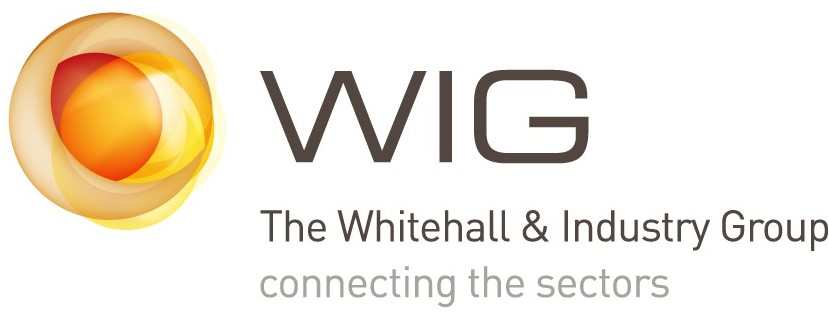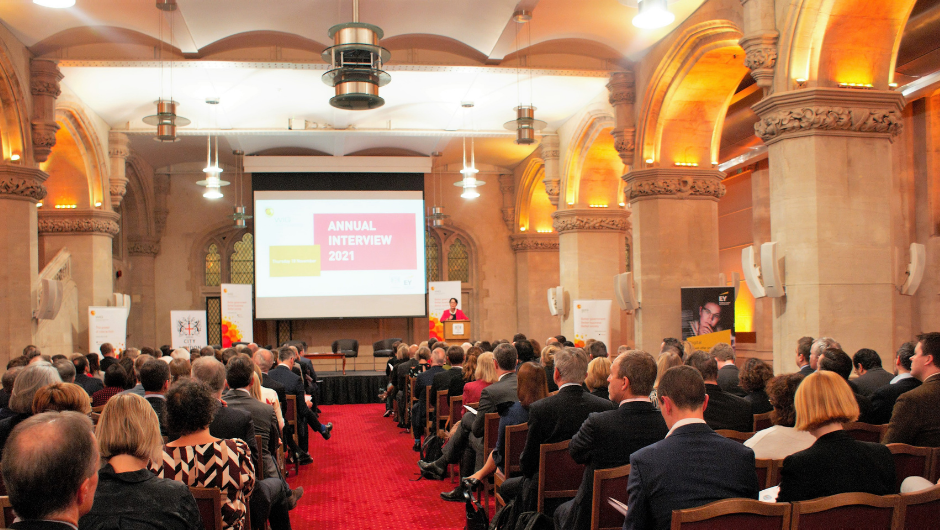After a two-year absence, we were delighted to host our Annual Interview in person. It would be an understatement to say that the UK has seen some dramatic changes over the past two years. Across every sector, our members have learnt an extraordinary amount whilst tackling new and unique challenges. Therefore, it was a real pleasure to be joined by: Simon Case, Cabinet Secretary; Alice Gast, President of Imperial College London; and Steve Murrell, CEO of Co-op – along with 200 senior leaders from across the sectors. During the event, the discussion covered topics such as COVID-19, levelling up Britain, civil service reform and net-zero. Here are some of our top take-aways:
COVID-19 put collaboration on steroids
The challenges of the pandemic presented a wealth of opportunity for new partnerships. An existential threat and a very clear, common goal created focus and enabled collaboration to happen more quickly, without the normal distractions of business and competition. In pursuit of this common and urgent cause, many new partnerships were formed, sometimes bringing together a most unexpected pairing - for example a successful partnership between an academic institute and gin distillery to increase the production of hand sanitiser.
It was a helpful reminder of the need to look beyond our own industry and to other sectors -essentially, problems can be solved much better when the right people are working together. Consensus in the room was that these new connections and networks have allowed for quicker development across the sectors, better policy and improved service delivery design.
As we move from the pandemic, there is both challenge and opportunity in maintaining these new, valuable partnerships and not forgetting the skill and importance of building new ones.
Net zero is the ‘ultimate team sport’
Tackling the climate crisis and achieving net zero is the ultimate team sport - with every individual, organisation and government having a role to play. Government has the responsibility to create stability, dictate strategy and provide funding. Meanwhile, business needs to step up and act with ambition – developing a coherent plan of action to achieve net-zero. Sustainability plans can’t simply be ‘my plan is better than your plan’. With COP26 being held in the UK recently, there is a momentum that every organisation needs to build on.
New skills are needed, now
The pressures of recent events, including the pandemic, showed how critical it was for Government to be able to identify the valuable signals within the noise of large datasets. Government doesn’t lack data, but it does need the right people to draw conclusions from it. The pressures of COVID-19 have now increased competition for talent – requiring the public sector to rethink how it attracts technical and scientific people. Without doubt, there is an urgent need for cross-sector skill-sharing.
Alongside this, as many employers attract talent through the promise of working from home, the challenge now is how to balance hybrid working effectively. Especially with concerns that work from home may hinder workplace culture, skill development and innovation.
Levelling up needs to be cross sector
Levelling up has been touted as the solution to address regional productivity disparities - helping communities across the UK to thrive. Currently, life expectancy can differ by seven years across a short tube ride in London. For levelling up to be successful, it needs to be a cross-sector effort. This is something that government can’t achieve alone. Business needs to create pathways of opportunity for people and work with schools to develop skills pipelines – especially in more deprived areas.
Overall, the one thing we can take from this year is intent. Intent from across the sectors to build partnerships that will move society forward. At WIG, we enable this by providing a trusted space and opportunities for discussion, skill-sharing and collaboration.
Originally published: 26/11/2021

